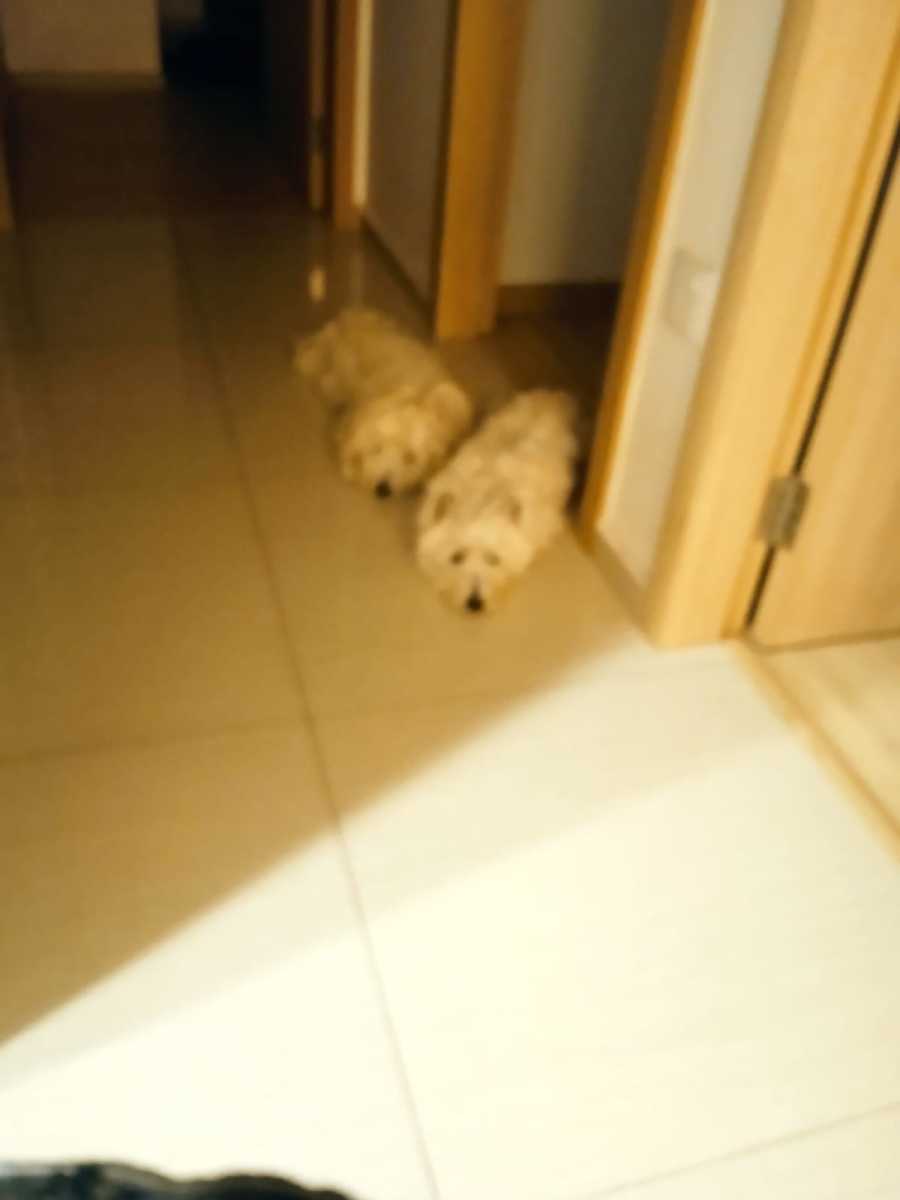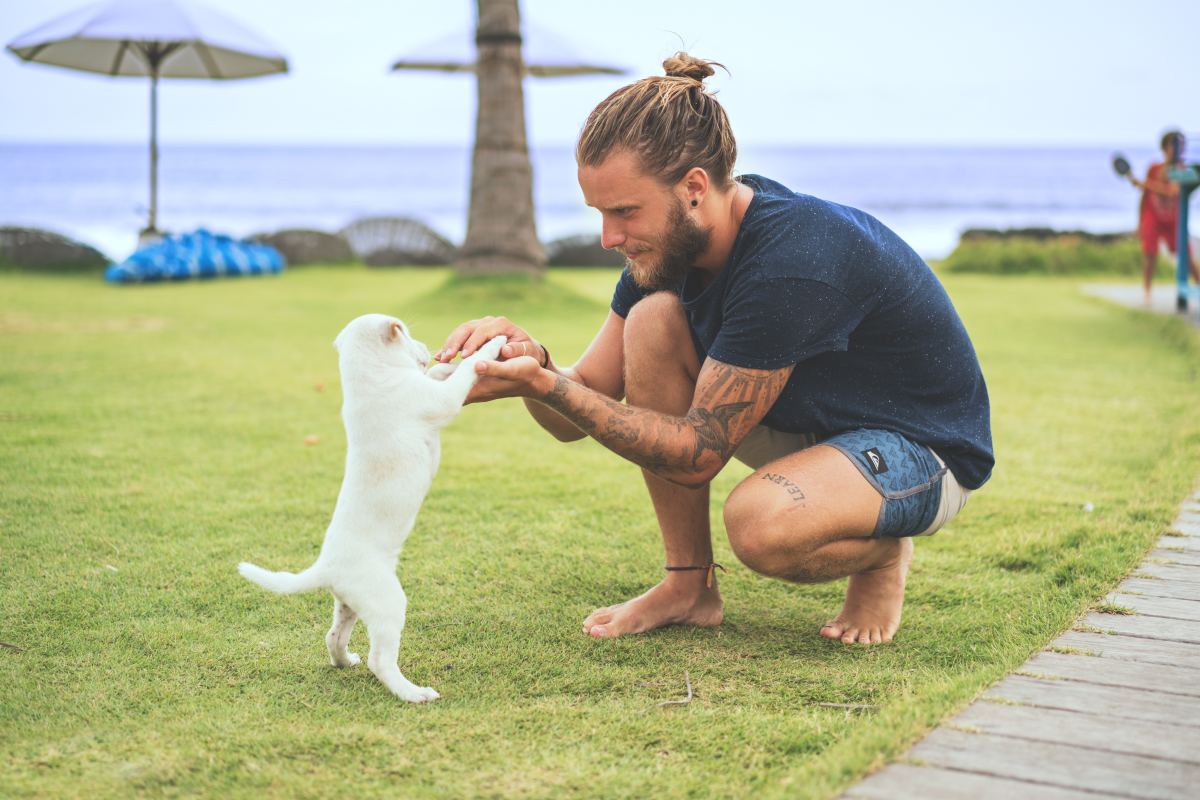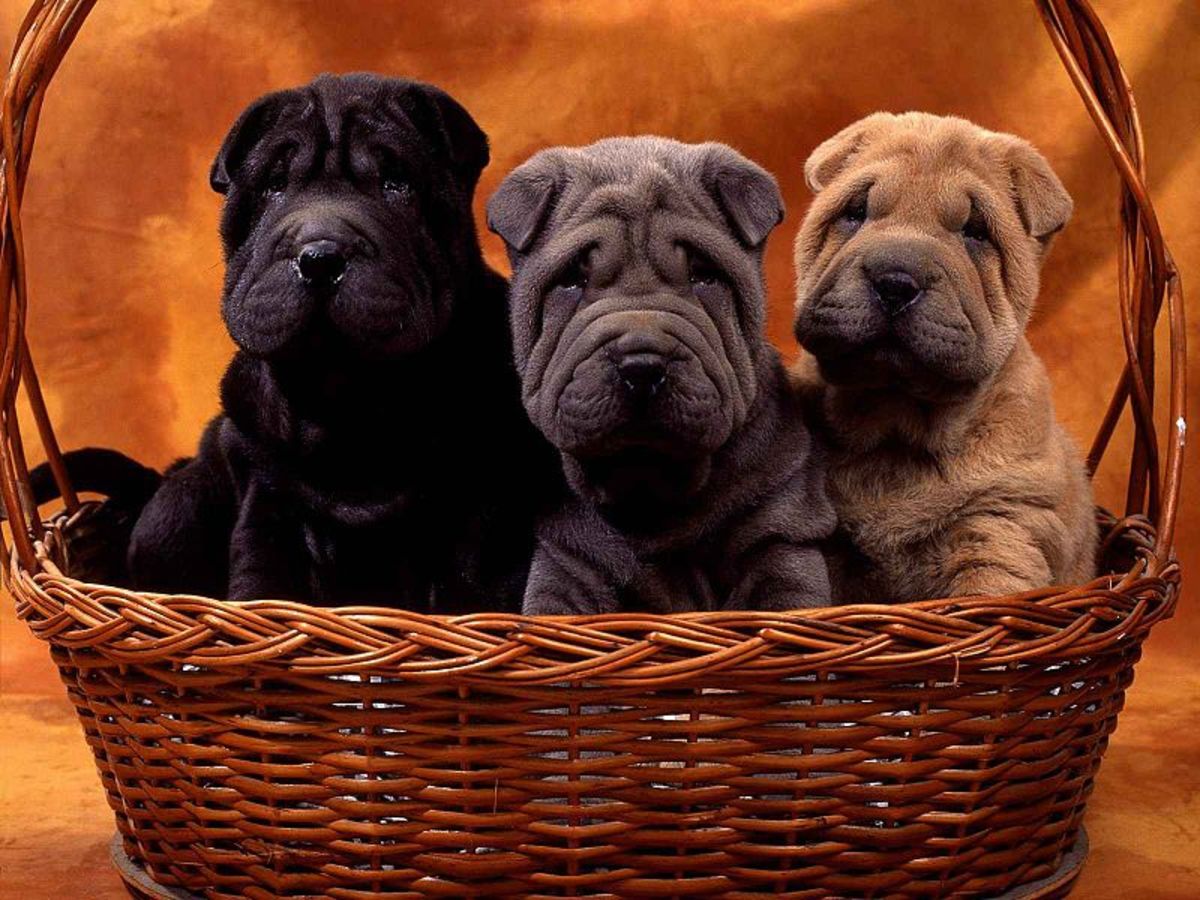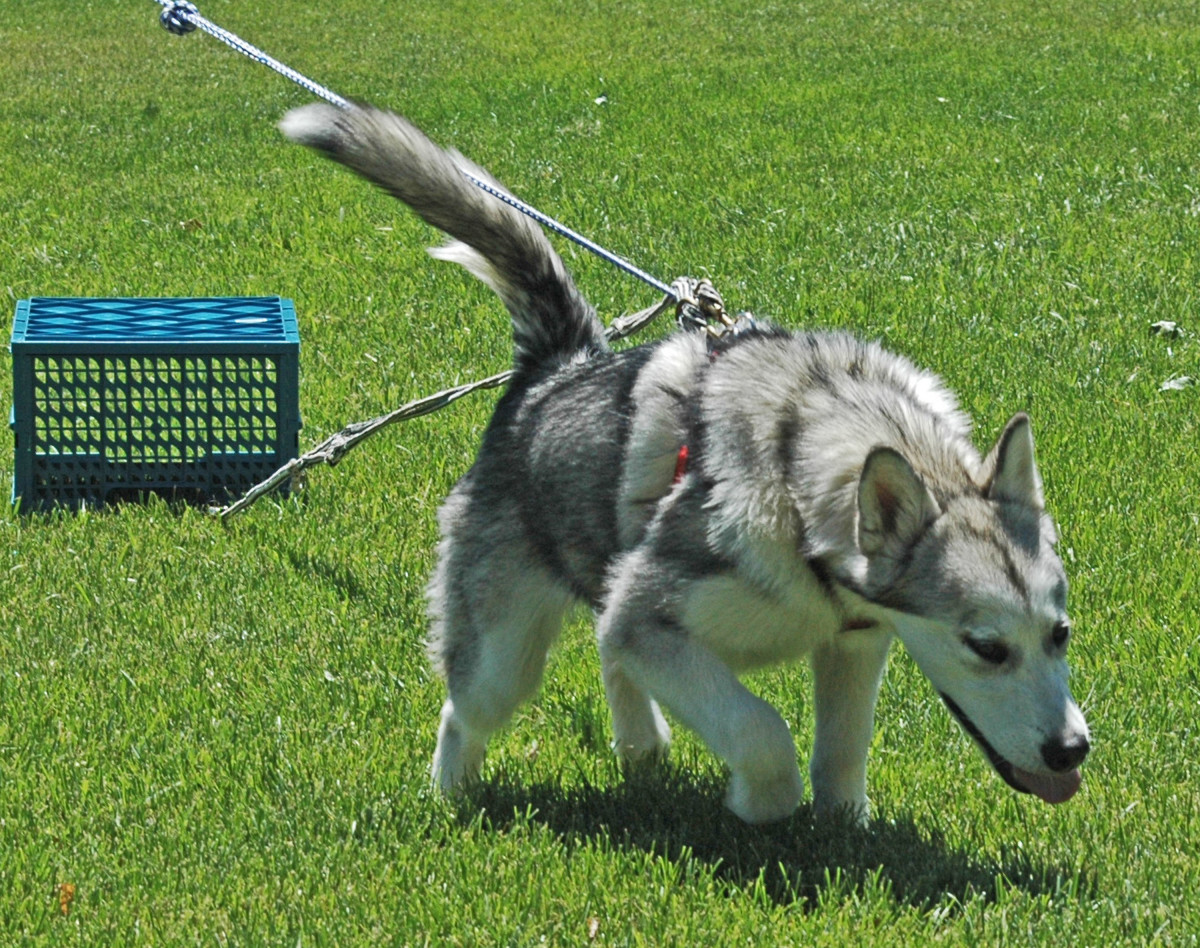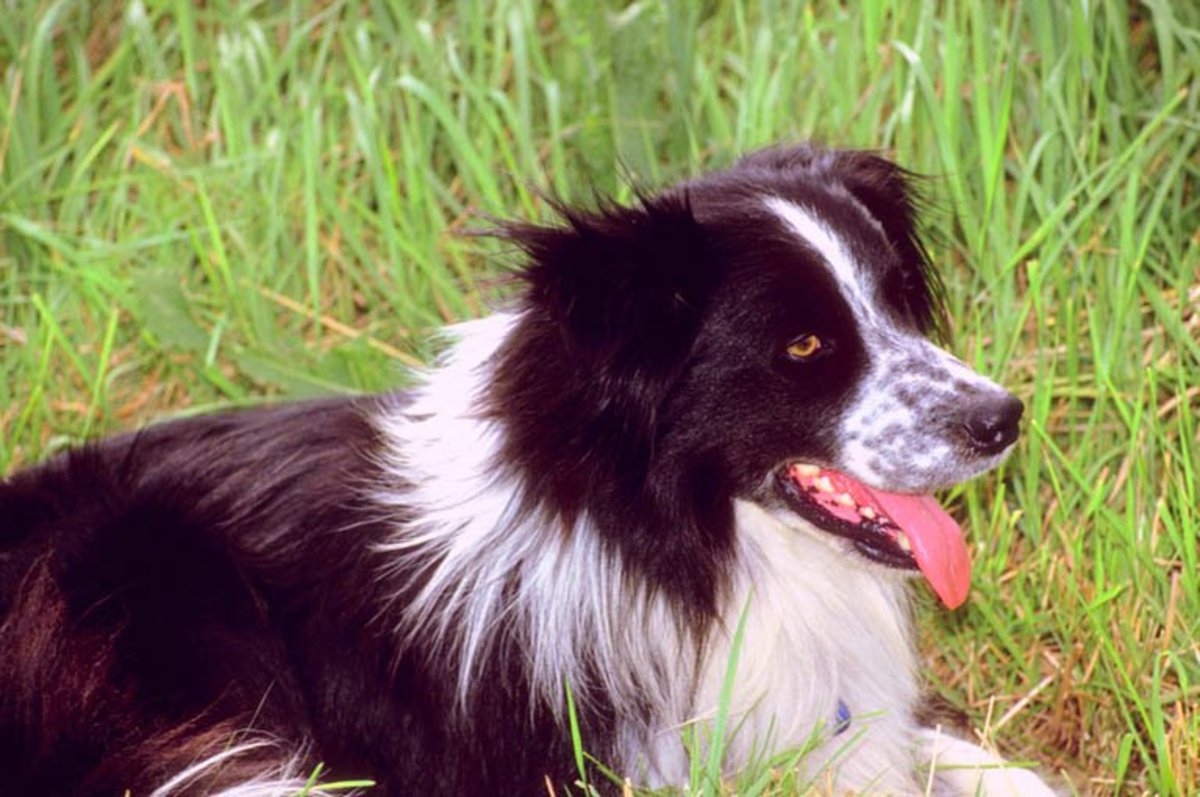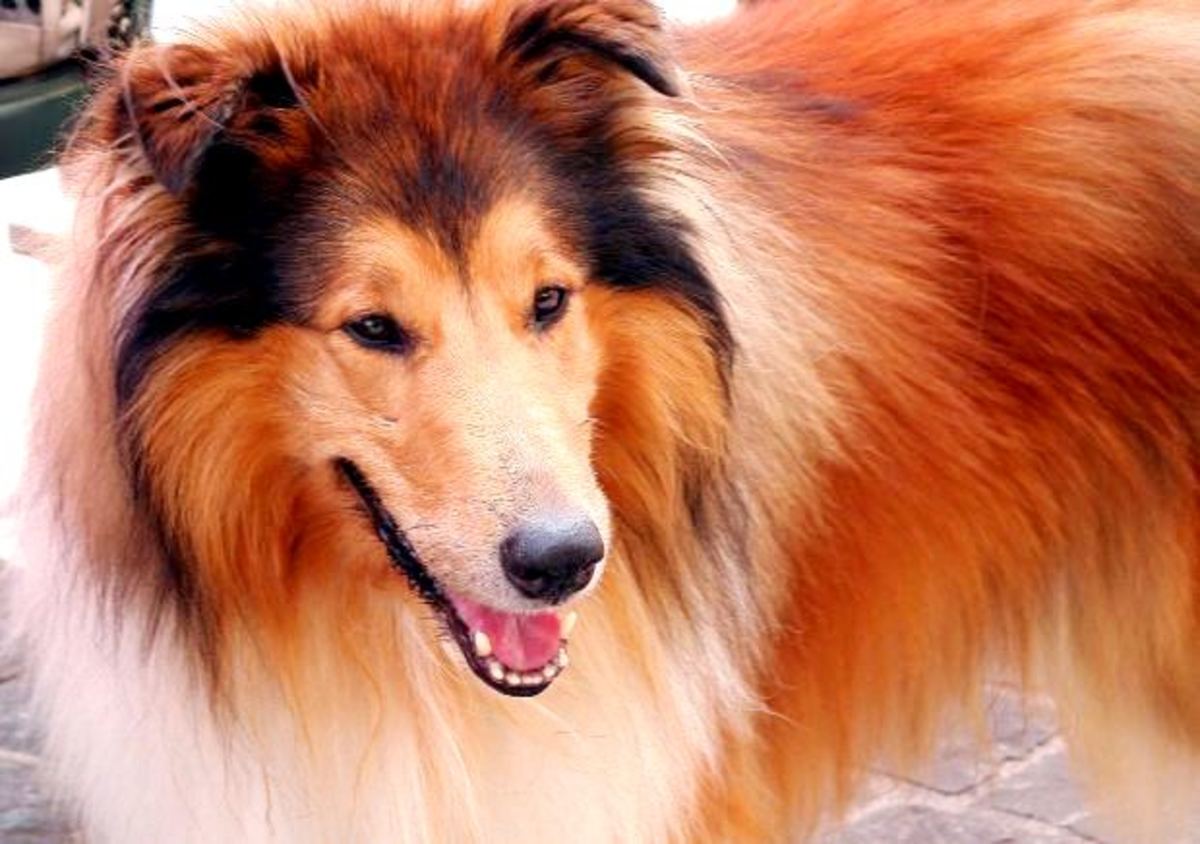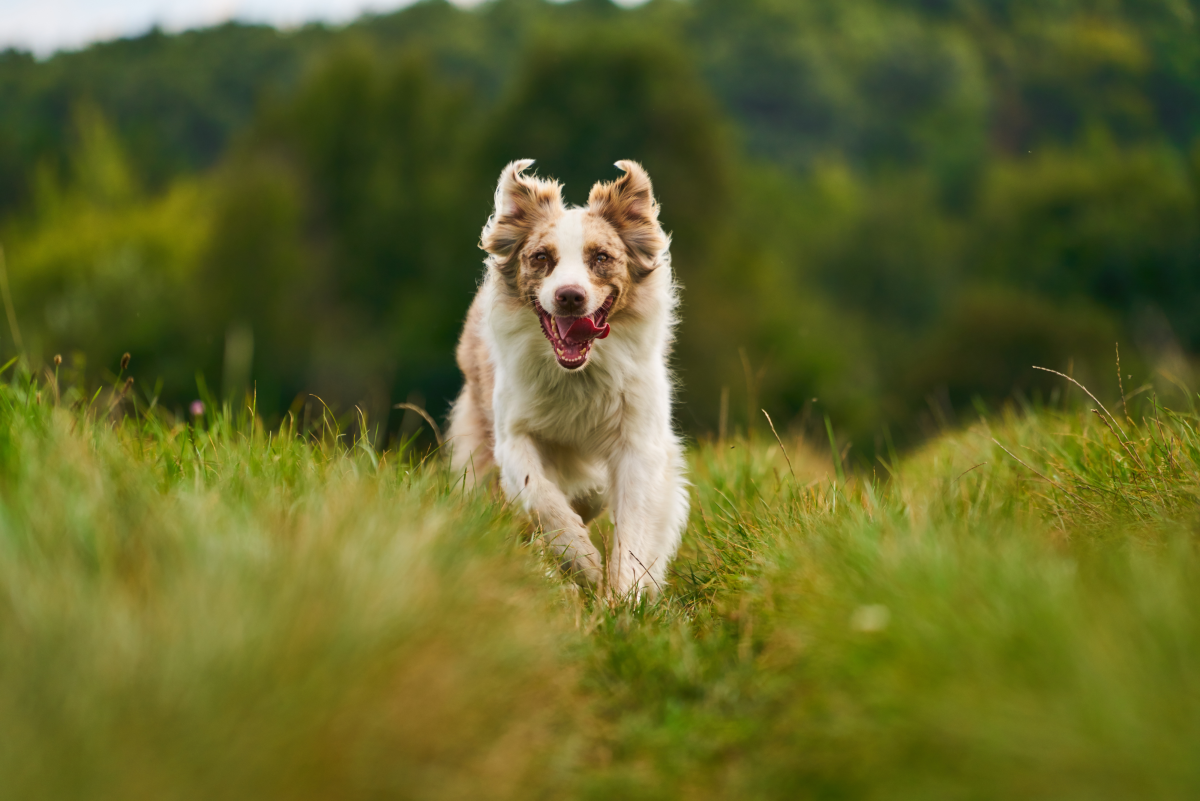How Do Puppies Learn?
Puppies
Puppies are result-oriented. As they go through life, they notice which behaviors produce results they enjoy, whether food, praise, fun outings, etc, and they repeat those behaviors as often as possible. Similarly, if they discover that one of their behaviors consistently produces undesirable results, they avoid behaving that way in the future.
These principles are at the heart of puppy education. When you reward a puppy's behavior with treats, praise, or another positive form of attention, you are telling the puppy, "That behavior got your what you wanted. Do it again."
Many times puppies learn things that we don't intend them to learn. For example, suppose your puppy scratches at the back door and you respond by letting him outside. You may not want the puppy to scratch at the door, however by letting him outside, you've rewarded the behavior.
When training puppies, and even older dogs, there are four general rules that you want to keep in mind.
training progress
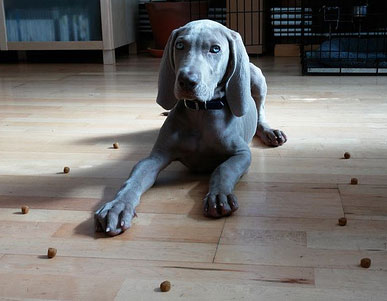
1. Repeat, repeat, and repeat some more
Puppies learn best through repetition, so remember this;
- When you teach a puppy something new, you must repeat the command and motions until he understands them. (That does not mean "sit, sit, sit. good boy;" it means that you should repeat the whole process of giving the 'sit' motion, say 'sit,' and when the puppy sits "good boy!")
- Once the puppy comprehends what you have taught him, you need to reinforce this knowledge repeatedly, or his memory will replace what you've taught him with something else.
- The more you practice with your puppy, the faster he will learn the lesson.
2. Keep it short and simple.
Puppies have a short attention span, and because of this:
- Keep the training sessions short. Some puppies work well with two or three short training sessions that are about 5 to 10 minutes long, while others enjoy one long session of about 15 to 20 minutes.
- Do not overwhelm the puppy by introducing too many new things at once. Focus on one command at a time, and don't move onto another command until your puppy as 100% mastered the first.
- If the training sessions is not going well, continued drilling on the lesson will only make the situation worse and cause the puppy to regress. Go back to something the puppy does well, praise him profusely, and end the session there.
Lulu doing "down".
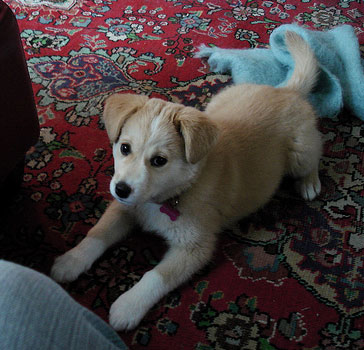
3. Make it fun!
Puppies love to play, and games are a very effective way to teach puppies new skills. For example:
- "Follow the leader"- Teach the puppy to walk on leash by holding out a treat and talking in a happy voice to encourage the puppy to follow you.
- "Hide and seek"- While the puppy's attention is somewhere else, hide behind a bed or in a closet with the door open. Call the puppy and reward him with lots of treats and praise when he finds you. By playing this game, the puppy learns to come when called.
Other recall games that help enforce the "Come" or "Here" command include:
- "Round Robin"-Have the family sit on the floor in a circle. Take turns calling the dog to come, rewarding him with small handfuls of food or a toy.
- "Into Flight"- Have two people call the dog to come up and down a flight of stairs. Reward the dog with food or a toy every time he comes to you or the other person.
- "Hallway Haven"- To ensure the dog's success, use a long hallway as a tunnel. One person is at one end while the other person is at the other end. Take turns calling "come" and rewarding him. The dog has no option but to go back and forth, and he cannot veer off.
- "Hide and Seek"- Station two or more people in different rooms of the house and take turns calling the dog back and forth. Reward the dog each and every time.
4. Don't send mixed signals.
- Be consistent. For example, if the rule of the house is that the puppy is not allowed on the couch, then never let the puppy stay on the couch; no if's, and's, or but's.
- Be aware of your body language and tone of voice, and make sure they send the intended message. For example, when you praise, be genuine and sincere. Puppies respond to praise when you mean it.



